detail profile vitaliy kovalenko
Peran Yang Di Mainkan Vitaliy Kovalenko
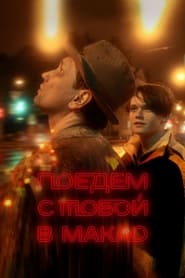 Law student Oleg who lives with...
Law student Oleg who lives with...We'll Go to Macau Together 2023
Law student Oleg, who lives with his mother and stepfather, learns that his father has been released from prison and wants to see him. Having met his dad, Oleg discovers that he is a passionate lover of gambling. So the young man plunges into the world of big poker, underground casinos and research laboratories. Having become part of this shadow reality, Oleg becomes infected with a gaming addiction.
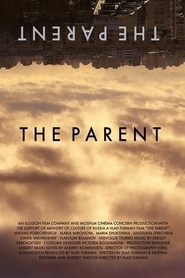 Struggling for a daughter hooked on...
Struggling for a daughter hooked on...The Parent 2022
Struggling for a daughter, hooked on heroin, the father had to get acquainted with the underground life of Saint-Petersburg. He doesn’t trust the police. Together with his friend he unravels the drug dealers network in order to stop the drug addiction that conquered the city in the 90s. Will they have enough powers to make it to the end?
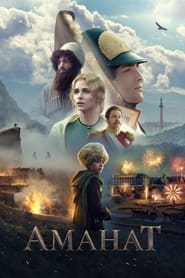 The love story of the son...
The love story of the son...Amanat 2022
The love story of the son of Imam Shamil Jamalutdin and Lisa Olenina against the backdrop of the dramatic events of the military history of Russia in the first half of the 19th century. Jamalutdin went down in history as a "great hostage", and the film is an attempt to answer the question: a hostage of big politics or big love. The historical context of the decline of the Nikolaev era, against which the story of love and betrayal, honor and duty, service to the motherland and loyalty to this word unfolds, will become the key to the film.
 The film tells the story of...
The film tells the story of...Mr. Knockout 2022
The film tells the story of the legendary Soviet boxer Valery Popenchenko, USSR and European champion and winner of the 1964 Tokyo Olympics. His life was a rollercoaster ride of ups and downs - from his childhood in Tashkent’s Suvorov Military School and service as a border guard, to his first victories and failures, and his friendship with Dynamo sports society coach Grigory Kusikyants.
 15 August 1990 Viktor Tsoi the Soviet Unions...
15 August 1990 Viktor Tsoi the Soviet Unions...Tsoi 2020
15 August 1990. Viktor Tsoi, the Soviet Union’s most famous rock star, leader of the band Kino, a symbol of freedom and change, dies in an accident on a Latvian highway. The bus driver who was involved in the tragic accident will bring his body back to Leningrad. A party of mourners – Tsoi’s wife and her new boyfriend, his mistress, his producer, his young son and an obsessed photographer – are part of the trip back. This is going to be a long trip, the perfect occasion for an agonizing unravelling of love, jealousy, ambition, and greed.
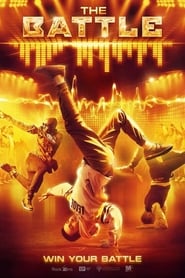 The dreams of passionate street dancer...
The dreams of passionate street dancer...The Battle 2019
The dreams of passionate street dancer Anton are crushed when an accidental injury makes him deaf. But it is exactly at this difficult time that he meets his true love and finds his vocation. Anton learns to listen to the music that comes from the inside and to create his own music through a dance that will never be the same. He starts to teach dancing to kids with hearing impairments and prepares a unique act with them. He takes great risks joining his former team with deaf kids for a new dance to take part in the World Championship.
 The story of Rudolf Nureyev whose...
The story of Rudolf Nureyev whose...The White Crow 2018
The story of Rudolf Nureyev, whose escape to the West stunned the world at the height of the Cold War. With his magnetic presence, Nureyev emerged as ballet’s most famous star, a wild and beautiful dancer limited by the world of 1950s Leningrad. His flirtation with Western artists and ideas led him into a high-stakes game of cat and mouse with the KGB.
 He considers himself a genius but...
He considers himself a genius but...Kharms 2017
He considers himself a genius but the publishers refuse to print his works. He loves women but they don’t always understand him. Constantly without money and out of touch with reality. The elegant fop Daniil Yuvachov names himself Kharms- a name just as effective as his appearance. An habitué of unending literary get-togethers and a lover of scandal. Living in society he is completely separate from it. Kharms throws down a gauntlet to his time, audaciously hurling himself into the vortex of reality, just as vague and arbitrary, with the same contradictions, as represented by his spirit.
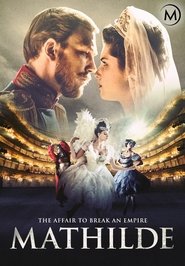 It portrays the memories of Matilda...
It portrays the memories of Matilda...Mathilde 2017
It portrays the memories of Matilda Kshesinskaya and her love affair with the last Tsar of Russia, Nicholas II. Matilda, a Polish-born ballerina from the Mariinsky Theatre in St. Petersburg, had a brief and intense romance with Nicholas between 1892 and 1894, before Nicholas married Alexandra Feodorovna and was crowned Tsar after his father's death. It also explores their relationship, facing societal pressures and interference from Nicholas's mother, Empress Maria Feodorovna, as well as Matilda's involvement with other members of the imperial family, the Romanovs, such as Grand Duke Sergei Mikhailovich and Grand Duke Andrei Vladimirovich.
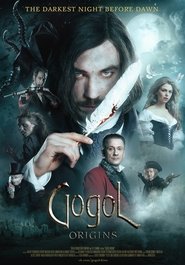 The year 1829 Nikolay Gogol a young...
The year 1829 Nikolay Gogol a young...Gogol. The Beginning 2017
The year 1829. Nikolay Gogol, a young Third Section clerk, is desperate: his own books seem shallow and mediocre, so he keeps buying entire print runs just to burn them all. He is suffering from violent epileptic seizures and struggles to keep on working. Investigator Yakov Guro accidentally witnesses one such fit and realizes that Gogol's visions contain clues that could help solve actual crimes. Together, Gogol and Guro take on a particularly weird and baffling case that brings them to a small village of Dikanka, where everyone has a huge secret to hide.
 A sixgrader is looking for ancient...
A sixgrader is looking for ancient...Hoorah! It's a Holiday! 2016
A six-grader is looking for ancient reassure during winter vacations.
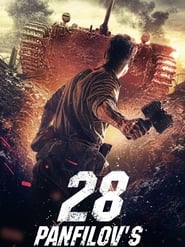 USSR Late November 1941 Based on the...
USSR Late November 1941 Based on the...Panfilov's 28 Men 2016
USSR, Late November, 1941. Based on the account by reporter Vasiliy Koroteev that appeared in the Red Army's newspaper, Krasnaya Zvezda, shortly after the battle, this is the story of Panifilov's Twenty-Eight, a group of twenty-eight soldiers of the Red Army's 316th Rifle Division, under the command of General Ivan Panfilov, that stopped the advance on Moscow of a column of fifty-four Nazi tanks of the 11th Panzer Division for several days. Though armed only with standard issue Mosin-Nagant infantry rifles and DP and PM-M1910 machine guns, all useless against tanks, and with wholly inadequate RPG-40 anti-tank grenades and PTRD-41 anti-tank rifles, they fight tirelessly and defiantly, with uncommon bravery and unwavering dedication, to protect Moscow and their Motherland.
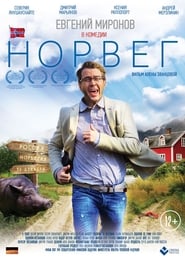 Managing position at Nastenka Cleaning Service...
Managing position at Nastenka Cleaning Service...The Norseman 2015
Managing position at Nastenka Cleaning Service, whose employees are migrant girls from Asia, comes at the Muscovite Kirillov out of the blue. The situation is complicated by the fact that Kirillov is planning to leave for Norway and expecting his bride, a typical European with a rather rigid interpretation of freedom and tolerance, to come visit. The idea that she will learn about the exploitation of "women of the East" terrifies him and makes him prevaricate in order to hide his "harem"...
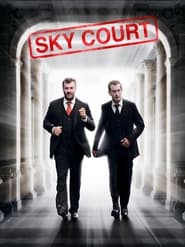 Lawyers Andrew and Benjamin are friends...
Lawyers Andrew and Benjamin are friends...Sky Court 2012
Lawyers Andrew and Benjamin are friends who share a lot, but their work puts them on opposite sides. Their trials do not occur in this life but in the afterlife. They are members of the Sky Court deciding where a human soul should go after death- Heaven or Hell. Unexpectedly in one case personal interests of Andrew interfere: the man who made the proposal to his widow is on trial.
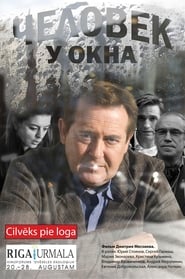 Alexander Dronov the actor didnt have...
Alexander Dronov the actor didnt have...The Man at the Window 2009
Alexander Dronov, the actor, didn't have many success in his life. But despite all the troubles he has an important life mission - he's the man at the window.
 The main character of this one...
The main character of this one...Antonina Turned Around 2007
The main character of this one - Antonina - a wife, mother, mistress of the house, wakes up after an unusually bright dream and realizes that she has not lived her whole life as she wanted. There were strangers around, people she didn't like, and it wasn't her life at all. She realizes this so clearly that even at the funeral of her own husband, Antonina does not cry, is not killed, and it seems that this death does not concern her at all. And this is despite the fact that my husband lived a long and prosperous life...
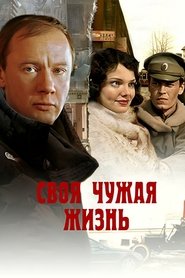 It was a time with a...
It was a time with a...To Live for Another 2005
It was a time with a rise of artistic life in the former capital of Russia. But the rise ended quickly and tragically with arrests and executions. Modern St. Petersburg and Petrograd of 1921 strangely and intricately intertwine in the mind of the director. The cruel, bloody, but romantic world of the first years of the Revolution converge with the artistic and domestic life of contemporary filmmaking on the same ground, on the same streets and squares.
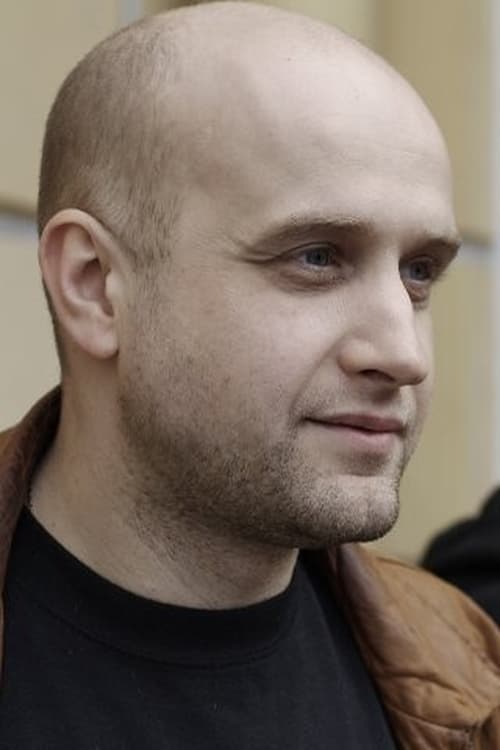
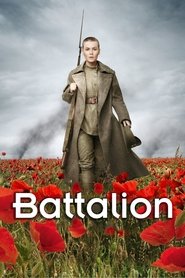 Russia 1917 WWI This is the story...
Russia 1917 WWI This is the story...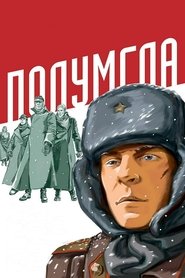 In the last winter of WWII...
In the last winter of WWII...